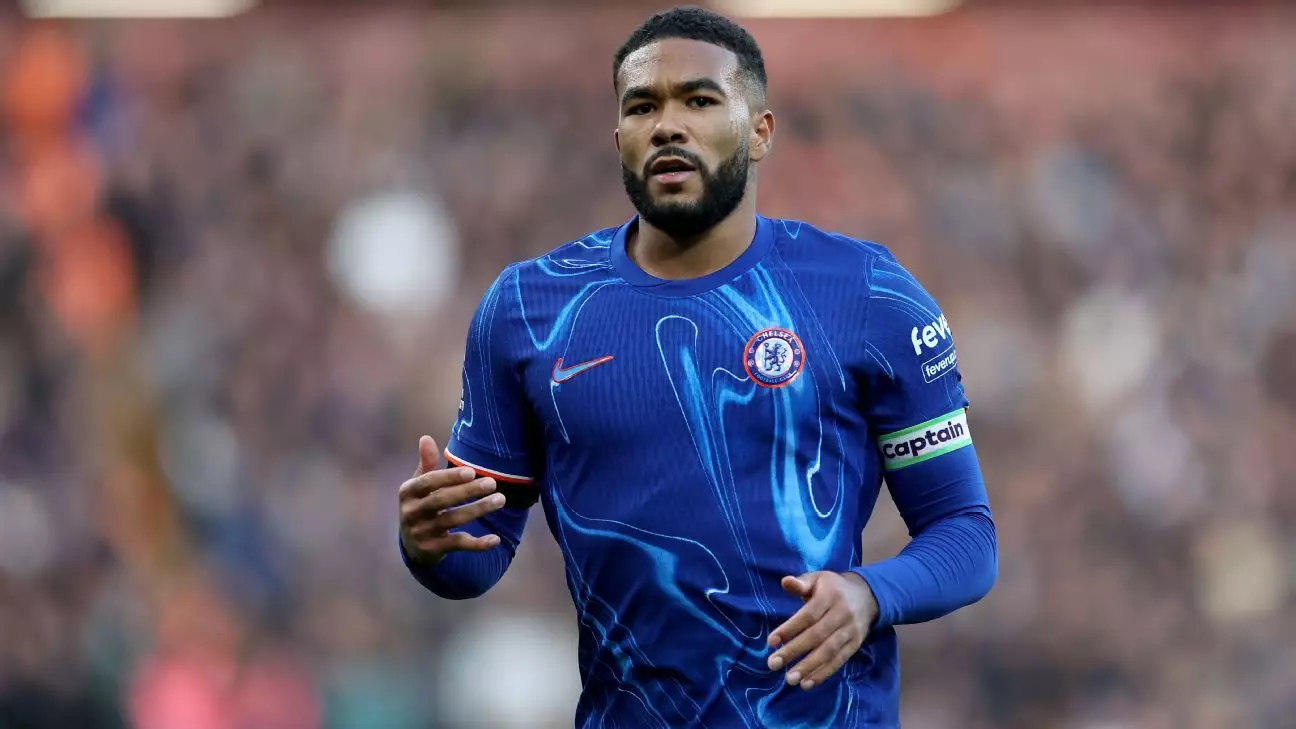The recent comments made by Chelsea manager Enzo Maresca highlight a significant concern within the club’s dynamics: a stark absence of effective leadership in the dressing room. In the aftermath of their loss to Liverpool, Maresca’s remarks on captain Reece James reveal an expectation for heightened accountability and contribution, not only to performance but also to team morale. This situation underscores a broader issue within many sports teams—how vital it is for captains to embody the spirit of leadership by setting examples and rallying their teammates.
Maresca’s frustration towards James seems justified, particularly given James’s prominent role as captain. Having just returned from extensive time sidelined due to a hamstring injury, his performance and leadership qualities came under scrutiny. The manager’s assertion that a captain should “give more” rather than merely expect more from others raises questions about the foundational roles players must embody. Captains are not just symbolic figures; they are pivotal in fostering determination, focus, and cohesion among the squad. This expectation should also extend to nurturing younger talents and enforcing club culture, particularly in moments of adversity.
Reece James is known for his reserved demeanor—a trait that can sometimes conflict with the proactive shouting visible in more traditional leaders. By labeling James as “reserved,” Maresca implicitly encourages a transformation for him, urging the need for a more vocal and assertive approach on the pitch. The nuances of this transformation are complex; James has been under considerable pressure, balancing his personal career growth with the burden of setting the tone for a receptive but developing squad.
The Broader Implications for Chelsea
Maresca’s admission of lacking a “proper leader” who can inspire confidence echoes a sentiment that resonates within the context of Chelsea’s fluctuating performance levels throughout the Premier League season. With four wins out of eight matches, the club finds itself in a precarious position. If the team struggles to unify behind strong leadership, it risks failing to reach its potential on the pitch. Identifying and cultivating such leaders—whether through player development or strategic acquisitions—becomes imperative moving forward.
Charting the Future Course
As Chelsea prepares to face Newcastle, the need for resilience and guidance from players like James cannot be overstated. Beyond immediate game outcomes, the club’s management must consider a proactive approach to leadership cultivation. This responsibility may fall on both veterans of the squad, like Tosin Adarabioyo, who Maresca mentioned, and the managerial staff, to instill the core principles of leadership in potential successors.
In summation, Chelsea finds itself at a crossroads where leadership plays an integral role in future success. Reinforcing accountability while fostering an environment where players feel empowered to step into leadership roles will be essential as the season progresses. Without a strong guiding influence, the club’s aspirations might remain unfulfilled, leaving a void that could hinder their success both now and in the long term.

Leave a Reply